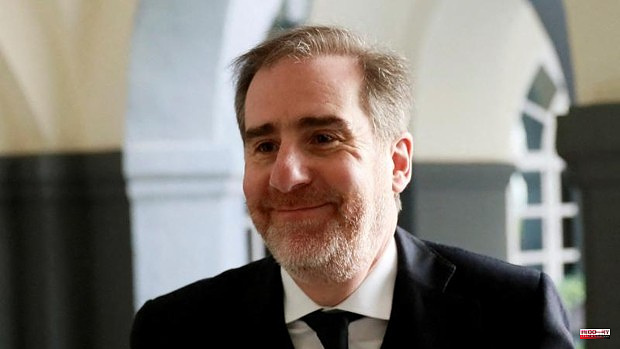Banco Santander is a transatlantic with 1.66 trillion euros in assets spread over half the world. And now you have a new number 2 to bring the ship to the port of profitability, efficiency and profit. Héctor Grisi is the one chosen by the board of directors to occupy the position of new CEO to replace José Antonio Álvarez, who had been in office since 2015 and who for three years now had an increasingly interim face. The latter will remain as non-executive vice president.
The relief is not accidental but something very well thought out and the name is agreed upon by everyone, including the European Central Bank (ECB). In 2018 the signing of Italian Andrea Orcel was announced
to be the new CEO and he went frog to the point that they broke his contract and a judge condemned Santander for it. With such recent experience, the bank decided that the best thing to do was to pursue internal promotion in search of a profile with an international reputation and experience.
Three names were in the final list: Antonio Simoes, Carlos Rey and Héctor Grisi. The latter has been the one who has violated the most support and sympathy, due to the work he has been doing on the other side of the Atlantic as CEO of Santander Mexico and responsible for all of North America, which includes the United States. Precisely Mexico and the United States are two strategic markets for the bank and with ample future potential. In 2021, the first of these territories reported 835 million in annual profit and the second 2,326 million. The latter was positioned as the first market of the group, on a par with Brazil. The culprit for North America's growth is Grisi.
His professional career began more than 35 years ago. Before joining Santander, he worked for 18 years at Credit Suisse, where he held various positions of responsibility. He landed at Santander in 2015 to lead the subsidiary in Mexico and in 2019 he was appointed regional manager.
Now he takes another jump in the dome, despite the fact that it was not planned to communicate the relief so soon. Grisi will take office on January 1, 2023, provided that "the corresponding approvals" are received. The new CEO will report directly to the board of directors, in line with the new management structure announced on February 24 of this year, and not to Ana Botín, in line with the governance practices demanded by the ECB, which does not want executive presidents with full control over the entities. If he were in another entity, the Mexican would be number 1 in the bank, but in the Santander model, the president continues to rule.
The objective was to combine the 'OK' of the shareholders -the funds, which usually cause problems-, the ECB and the council. Everything is on track, and also a message is sent in the midst of the battle to grow in Grisi's country of origin, Mexico.
His landing in the dome is a full-fledged nod to the Aztec country; a territory with banking potential and yet to be fully exploited. Santander redoubles its commitment to the country with Grisi and reconfirms that Mexico will play a fundamental role in the entity's future.
The message can also be understood towards the Mexican president, López Obrador, who rejects the growth of Spanish companies in his territory. The latest case: Santander's entry into the process of selling Citi's subsidiary in the region, Banamex.
The bank wants to buy Banamex, in cash, and with the approval of López Obrador to be the first entity in the country. In fact, they have already entered the 'data room' to analyze the operation, the step prior to submitting an offer. And complying with it is easier with Grisi as CEO than without him.
In addition, the new CEO is the one who has been monitoring Santander's entry into the bid: if it fits into the business, which they have concluded yes; if they can pay it in cash, which everything points to yes; and if they can get ahead of their competitors.
These competitors, as published by Bloomberg, are other Mexican entities that already have an advantage simply because of their nationality. These are Banorte on the one hand, one of the market leaders, and Inbursa, owned by tycoon Carlos Slim. Likewise, other smaller firms such as Grupo México SAB and Banca Mifel are reviewing the operation in the data room. BBVA also appears along the way, which is currently the country's leader, although the entity chaired by Carlos Torres has not yet decided to join the fight.








